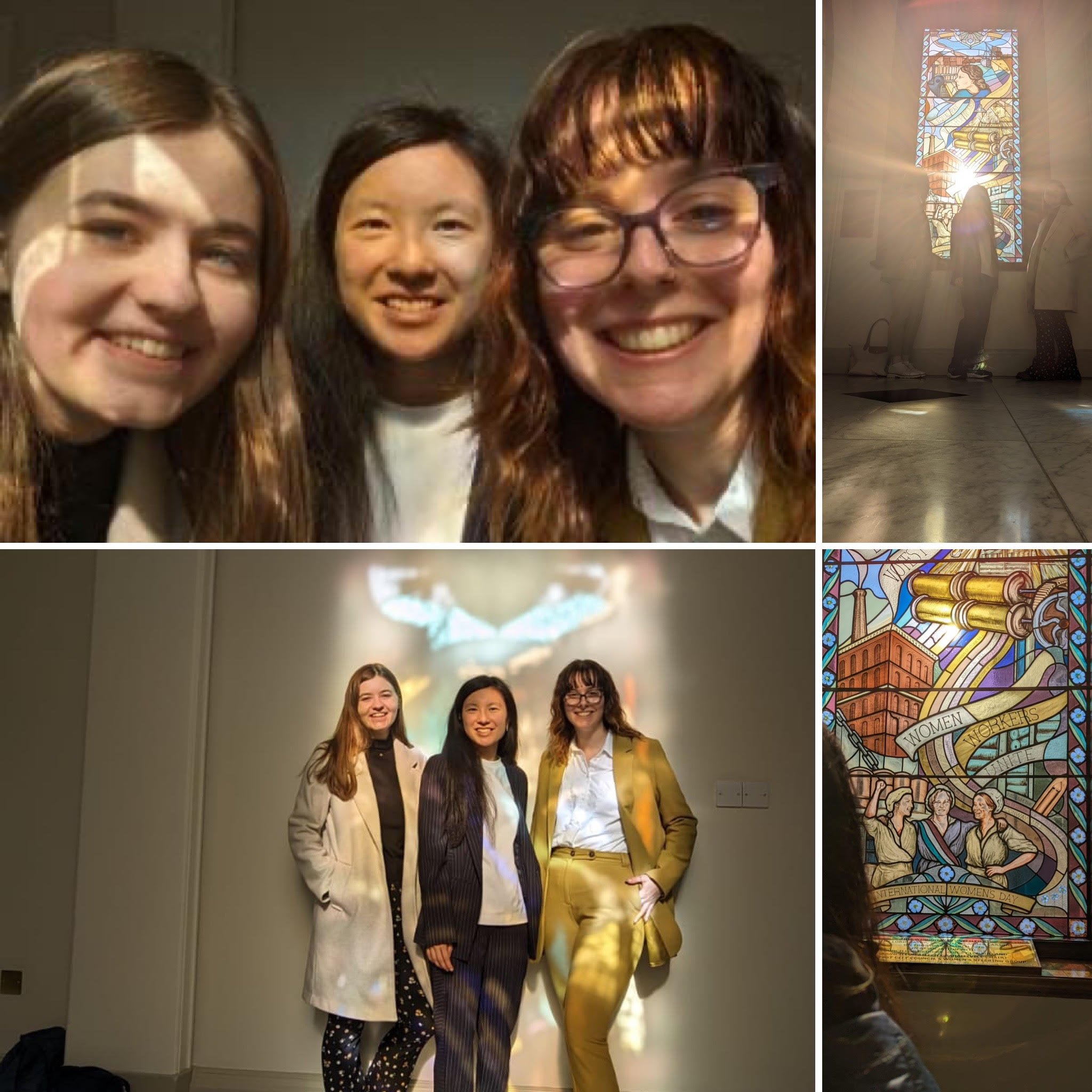LILI BUSBY #WIMBELFAST #IWD2024
STUDENT JOURNALIST LILI BUSY
BY LILI BUSBY in Belfast City Hall
The Women In Media Belfast IWD event: Inspire Inclusion, filled the city hall with optimism, fellowship and support.
The room was vibrant with women uniting for one cause – for the inclusion of women and diversity in the media.
Alongside a range of brilliant podium speakers, two panels were hosted at the event.
This report will focus on ‘The Future of Journalism’ panel.
It featured UTV’s on-screen journalist Tori Watson, BBC’s senior journalist Claire Graham, Radio presenter Yasmin Zemmoura, and the Managing Director of The Radio Academy, Aradhna Tayal Leach.
Hosted by freelance journalist Sophie Clarke, the four women spoke on how the media inspires inclusion, how important multi-media skills are in today’s world, and the challenges they face through social media:
Tori said: “The media still has some uphill battles in inspiring inclusion. As journalists you still want to reach out to people. There is still an element of people wanting to speak to us as well. I feel passionately about reaching audiences and giving people a voice. Getting people to give that back is really tricky.”
Tori found that when she was interviewing people on the street, often, women would ask her to interview their husband.
Despite this, Tori has found a massive change in the media, but still maintains there is work to be done: “Just over 50% of our Screen Reporters are women which is brilliant. It’s just a reflection of – you know what you see on the tv is what you also see in society - It is important you are able to get your voice across...There is an onus on companies to be able to make you feel comfortable and confident to be there.”
Aradhna added: “Events like this are important because we need to be able to see role models...Every single person should be supporting other women. It is important we find our allies.”
She believes inclusion is important and maintains it’s not all about ticking boxes:
“Especially in the media we’re there to represent our listeners, our society. If we don’t have that representation inside our organisations at every level, how could we possibly represent the society that we’re looking to speak to.”
By including people, rather than seeing it as ‘the right thing to do,’ it gives them a platform to speak out for themselves.
Claire noted the importance of multi-media skills and how important it is to be across all platforms. She added that so much of it is about self-promotion.
“All you’re doing is communicating,” she said, “transfer those skills.”
Following this, Yasmin reflected on how different the gateway into radio is now, compared to when she started 20 years ago.
Yasmin began her journey by volunteering and loved being in the radio environment.
She said that social media was the biggest change, and that 93% of Q Radio listeners use social media daily.
“Things are changing but radio is so adaptable and I think that’s really important to see – it can really move with the times...It works really well with social media as it gives another layer.”
Sophie then posed the question of whether journalists are expected to do more because of the advances in technology.
Tori said: “You try your best to be across it...Sometimes you just can’t...it is ok to ask for help. There’s no shame in it.”
She added that it does get easier with technology advances.
“The demands are high, but it is about managing that and companies are now aware of the pressures.”
On balancing her role as Managing Director of The Radio Academy, Aradhna said she was constantly learning.
She maintains inclusion is not just about getting through the door, but to also support people through their career at every level.
Regarding mental health, Claire said: “As a woman in a competitive industry where you are expected to be ruthless, expected to be strong... it
was very hard for me to accept I could be both those people, [mother and journalist] ...”
Claire experienced post-natal depression and feels maternal mental health is not being talked about enough.
“I genuinely did not think that I would be back doing my job. It was women who got me there, men who supported me through it as well; it’s very much a female issue, but everyone in society should think about it as well.”
Yasmin was surprised at the idea of women being perceived as less ambitious when having a child.
She went through an IVF journey and talked to her listeners about this.
“Sharing something so personal brought me closer to the audience. I have made friends through it, had so much support...unbelievable responses.”
Given the rise of social media in journalism, many would argue there is more appeal to be personal with audiences.
Tori had this to say.
“I am there to do a job. I am there to present the news in an impartial matter. My social media is private, you have to have something for yourself...”
Tori would usually publish news-based posts but added that social media could be useful to those new to the industry.
With individuals such as those included in this report, the future of journalism certainly looks bright.
Events like Inspire Inclusion highlight how far women in the media have come, and how far they can go.
Find LB on X: https://twitter.com/Lili_Busby




